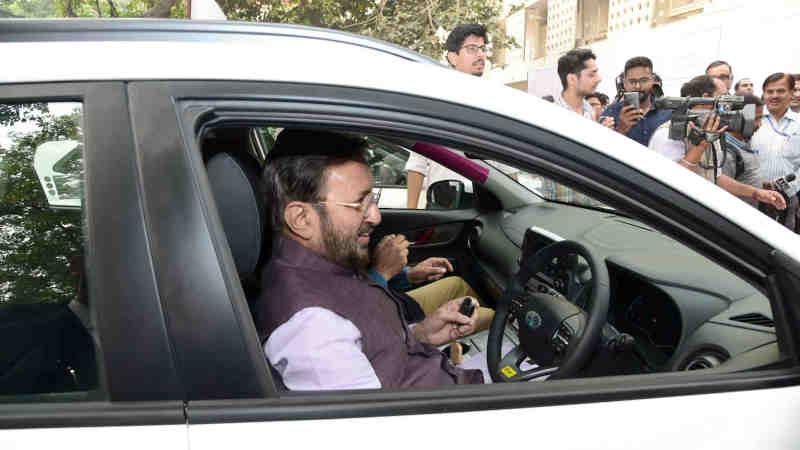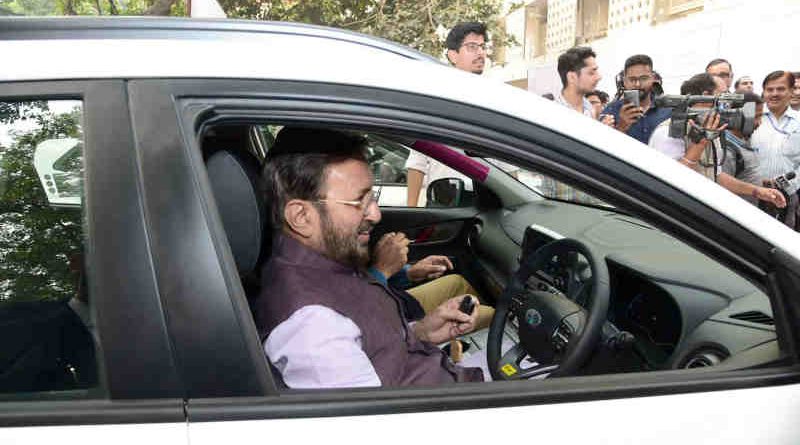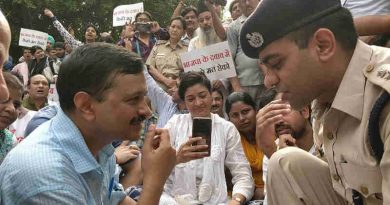India Plans to Use E-Vehicles to Reduce Pollution

India’s environment minister Prakash Javadekar flagged off e-vehicles, procured by the Ministry of Information and Broadcasting at an event in New Delhi on Friday (November 1).
The electric-vehicles are supplied by Energy Efficiency Services Limited (EESL), a joint venture of state-owned NTPC Limited, Power Finance Corporation, Rural Electrification Corporation, and Power Grid Corporation of India, under the Government of India.
Javadekar stated the benefits of using e-vehicles, “E-cars are an attractive, sustainable, and profitable solution to mitigate climate change and the risk of public health caused by vehicular emission.”
The government expects that the result of replacing existing petrol and diesel cars by e-vehicles will be a fuel savings of 832 million litres per annum and reduction in carbon dioxide 2.23 million tonnes per annum.
[ Read and Download: Delhi Disaster Report 2019 ]
Expressing his displeasure over recent politics and blame game done over the issue of pollution in Delhi, the minister stated that it is of utmost importance that one must unite and fight against pollution. These days, Delhi Government headed by chief minister Arvind Kejriwal is blaming the Central Government for lethal pollution levels in the city.
Highlighting the role of Central Government towards the problem of air pollution in Delhi, the Minister said that earlier both Eastern and Western Peripheral Expressways were only an issue of discussion, but the current Government implemented and built the expressways in five years and now around 60,000 vehicles have been diverted away from national capital, which has led to substantial reduction in pollution.
[ Report Corruption in Delhi Housing Societies to Clean House ]
Expressing discontent over the inactive approach of Delhi Government, Javadekar said that around 3500 crore rupees which were to be given by the state government for Eastern Peripheral Expressway and bypass road were not released and only after the Supreme Court intervened an amount of 1000 crore rupees was sanctioned.
The minister further expressed that by opting for e-vehicles, which are pollution-free and have no particulate matter, it is a step in the right direction towards combating air pollution. Javadekar also expressed his commitment to use e-vehicles as part of his daily routine.
According to a report by India’s planning department NITI Aayog, India can reduce energy demand by 64% and carbon emissions by 37% with the help of connected, shared and electric passenger mobility across the country by 2030.





